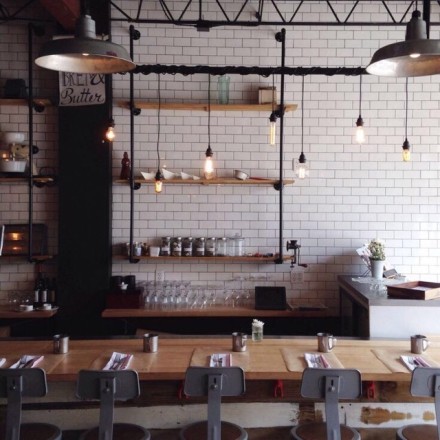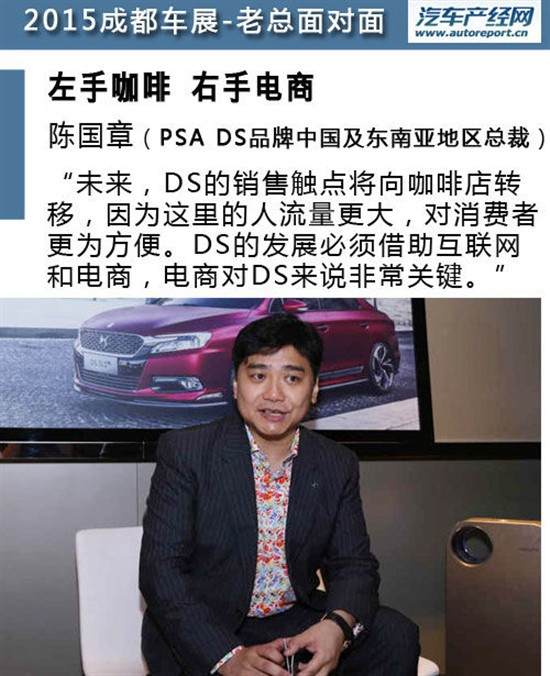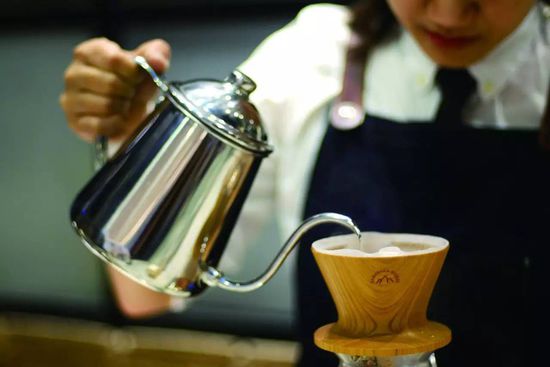Is the coffee shop a good business?

Many people only know about startup cafes after the prime minister goes to 3W Cafe to talk to entrepreneurs. In fact, the rise of domestic entrepreneurship cafe business began in 2009, from Hangzhou, Beijing, Shanghai, Shenzhen to 2013 has spread to Wuhan, Nanjing, Changsha, Jinan, Zhengzhou and other provincial capital cities. Especially Beijing Zhongguancun Chuangye Street, it is the most concentrated area of entrepreneurship cafes and maker spaces in China. After the Prime Minister went to the 3W Cafe, the excitement here was even higher than before. In the past, government officials at all levels, especially officials from various development zones and High-tech Zone, who entered before running (ministry), now sit, chat, pat and drink a cup of entrepreneurial coffee drunk by the Prime Minister in 3W coffee shops. After returning to their own cities, a large number of similar entrepreneurial coffee shops have sprung up in various cities.
In the era of mass entrepreneurship and innovation, what role is the entrepreneurial cafe, and how will it develop and evolve?
Development stages of domestic start-up cafes
1. Startup Cafe Phase 1.0 (2009-2012)-Communication Platform
All kinds of cafes in this period were not clearly labeled as entrepreneurs at the beginning, and there was no clear positioning and service mode when they were established. For example, the earliest Beta Cafe was established due to the interests and hobbies of the founder White Crow (Internet person, user experience expert, then employed Alipay), etc., with the purpose of providing a space and place for communication and sharing with familiar friends. At that time, the media gave more labels to such cafes, such as IT and Internet. Later, with the return of some overseas study tours in Beijing to open garage coffee and other obviously contain Silicon Valley entrepreneurial spirit association metaphor coffee shops, coupled with the rise of the mobile Internet at that time attracted a group of makers began to gather at this time, such coffee shops began to be clearly labeled by the media as entrepreneurs. At this time, although the establishment purpose, operation idea and business model of the entrepreneurial cafe are different, the basic practice is to use coffee as the medium to provide communication platform for the makers, and to provide some basic office space and basic entrepreneurial services for the initial team of entrepreneurship.
2. Startup Cafe Phase 2.0 (2012-2015)-Incubation Space
2012 mobile Internet entrepreneurial tide has begun to surge, now some well-known mobile Internet start-ups are mostly at this time to start or nurture, angel investors and Internet tycoons at home and abroad also began to drop more in all kinds of entrepreneurial cafes, a few months ago coffee shop bitter maker overnight to get angel people's valuable investment and move to 5A office building entrepreneurial myth began legend. Internet tycoons or angel investors participated in the start-up cafe also began to appear at this time, 3W founder Xu is only Internet analyst, behind more than 100 shareholders are business elites and well-known investors, such as Xu Xiaoping, Shen Nanpeng, Zeng Liqing, etc.; Hangzhou Fuyun Coffee Li Zhiguo, Shouyuan is from Alibaba. At this point, the startup cafe began to enter the 2.0 period, when the startup cafe began to have the function of incubation and investment. 3W Cafe is representative of this period.
3. Startup Cafe 3.0 Stage (2015-?)-- Business ecology? Joint office?
In 2015, all kinds of entrepreneurial cafes began to surge everywhere. Among them, those who do not have mature ideas and business models account for the vast majority, and those who sell dog meat by hanging up sheep's head, while defrauding the preferential conditions of the government or relevant departments and institutions by starting a business, while preparing to make money by traditional catering are not a few. In addition to the local government or tycoon background support, most of these followers will find that start-up cafes are just a beautiful story. If you want to make money from incubation projects, you need to pay a lot of tuition fees. It is not easy to make money from traditional meals.
Since the beginning of this year, there are two ideas and modes of entrepreneurship cafe that attract attention: one is that entrepreneurship cafe, encouraged by capital, begins to intervene in commercial real estate and venture capital, builds entrepreneurial ecological chain around entrepreneurs, establishes entrepreneurial ecosystem, and provides one-stop service for entrepreneurs following the growth of entrepreneurs. The second is the entrepreneurial projects of several real estate tycoons, such as SOHO 3Q, an office short-term rental product launched by Pan Shiyi, chairman of SOHO China, Mao Daqing, former senior vice president of Vanke, who has just launched his new project "Youke Workshop" and "Hongtai Innovation Space" created by Wang Shengjiang, former vice president of SOHO China, and Hongtai Foundation. Globally, the number of such co-workers has grown from 300 to 6000 in the past five years. At the same time, domestic entrepreneurship services have reached a new high point. In the past year, YOU+ apartments, SOHO 3Q and other real estate projects to build entrepreneur communities have been launched for six consecutive years, providing services from living and office space required for entrepreneurship to various entrepreneurial services, and then to docking investors and other resources. In this kind of project, coffee is really not important, what matters is the strength and background of the founder. Here we do not discuss for the time being, interested friends can search engine dynamic media "entrepreneurial space is not a good business" article reference.
The Dilemma of the Development of Domestic Entrepreneurial Cafe
Recent stock market volatility, especially GEM (Dream Board?) A sharp drop in the price of $100,000 means that the bubble in the capital market has burst, which also makes the prospects of the already unclear development of start-up cafes even more confusing. The early-established start-up cafes have not yet completely got rid of the embarrassment of unprofitable daily operations. Even if there are more successful incubation projects, there is still a long time to exit. How to develop in the later stage is still uncertain. The situation of recently established entrepreneurial cafes is even worse, especially those in second-tier and third-tier cities. The entrepreneurial atmosphere, entrepreneurial environment and entrepreneurial conditions in cities are far inferior to those in first-tier cities, and the development prospects are even more confused. Recently, the collapse of many start-up companies has cast a shadow on the entrepreneurial prospects of the whole society. Angel round and round A are OK, and the money after round C is getting harder and harder to get. Most startups would have died in round C, but now it's even worse.
However, the bursting of bubbles in the capital market is not only a bad thing for the whole venture capital, but also a good thing. Xiong Xiaoge, IDG global executive vice president and president of Asia and founding partner of IDG Capital, who invested in Tencent, Baidu, Sina and other enterprises in the early stage, believes that historically, when the capital market is not good, it is a good thing for venture capital. At least now to talk about entrepreneurial projects, entrepreneurs are also calm a lot, in the valuation will not be lion big mouth, angel investment at least not as expensive as before.
The development way of domestic start-up cafe
China is still the best period for entrepreneurs. The Prime Minister has repeatedly stressed that mass entrepreneurship and innovation are the consistent goals of this government. Therefore, the development prospects of entrepreneurial cafes are not entirely pessimistic. Especially the crisis of capital market brings development opportunity to the start-up cafe that does start-up incubation and service. However, the tuyere brought by the mobile Internet has gradually begun to close, and traffic has begun to roll on all kinds of entrepreneurial tracks. There is not much time left for entrepreneurs and start-up cafes. What is the next tuyere, when to open or uncertain things, this will test the professional accomplishment and experience of venture capital investment in start-up cafes. Therefore, with the support of strong shareholder background, start-up cafes with deep background will definitely usher in sunny spring after experiencing the winter of capital and venture capital investment. When the projects hatched or invested in skyrocket in the capital market, the harvest season will arrive, and new market myths will appear at that time.
And what about the start-up cafes in the second and third tier cities?
The first thing to do is to discard fantasies and not indulge in empty dreams of "coffee is not important, it is important to incubate projects." In fact, whether you are a first-tier city or a strong shareholder background, coffee is really important to be a startup cafe! Not to mention that you are a start-up cafe in a second-tier or third-tier city. Coffee is even more important to you! Some people don't know coffee at all, so they go to open a startup cafe. It's definitely the rhythm of seeking death. You go to think, coffee is not important, why this kind of entrepreneurial service and incubation place should be called entrepreneurial cafe? Why isn't it called Start-up Restaurant? Why isn't it called a startup tea house? If you understand the history of coffee, you will find that coffee is not only a refreshing drink, coffee is a magical drink, the history of coffee and the history of human civilization development are closely related. A cup of coffee is enough to change the world. It brought enough momentum to the British Industrial Revolution. It gave birth to and catalysed the French Revolution. Coffee shops are also European Social networks in the 17th century, which is equivalent to our current Internet. People exchange information, create art and discuss current politics in coffee shops. The predecessor of the London Stock Exchange and the New York Stock Exchange actually evolved from coffee shops. A cup of good coffee will bring you "enthusiasm and strength", but also can bring you "freedom and creativity", but also can bring you "communication and sharing", no good coffee, how can you bring that kind of entrepreneurial atmosphere to your cafe, how can you attract and retain those makers?
So let's get back to the nature of the startup cafe. The startup cafe is still essentially a cafe, providing customers or makers with a good cup of authentic coffee, which is the minimum function of the startup cafe. The founder of 3W Cafe Xu Dan once said that coffee was only a medium, coffee was not important, the atmosphere of the cafe was important. But the cruelty of reality soon made Xu understand that whether you are doing a startup cafe or any other theme cafe, the first important thing is precisely the coffee that was thought to be the least important. Make good coffee, make good coffee, let 3W coffee shop take its first step towards success.
Second, start-up cafes still have to focus on entrepreneurs. It is really a good time to start a business in history, especially recently, some angel investment institutions have begun to sink channels to second-tier or even third-tier cities, bringing opportunities to start-up cafes in second-tier and third-tier cities. Those with strength and background should try their best to make good use of the power of the government and shareholders, win the support of the government and shareholders, provide entrepreneurial services around entrepreneurs and build an entrepreneurial ecosystem. At present, some newly established entrepreneurial spaces have set up the banner of building entrepreneurial ecosystem. Around entrepreneurs, they not only provide various technical services, such as registration, law, finance, taxation, etc., which entrepreneurs need most in the first three months, but also provide office space, entrepreneurship training, investment and financing docking, team building and media information, etc. In profit mode, there are paid membership mode, paid service mode, real estate profit mode, free service equity compensation mode and free service investment return mode. Of course, these models are still to be tested.
Building an entrepreneur ecosystem is not only those aspects mentioned above, but some people may not be able to fully provide the above-mentioned entrepreneurial services due to resource constraints. How to attract entrepreneurs and serve them around entrepreneurs? Here's a little idea: there's a coffee consumption trend in Italy that's now spread to many countries around the world. This coffee consumption fashion is called "coffee on hold." It advocates caring and capable consumers to buy more coffee when paying for it, and the clerk will write "a cup of coffee to be used" on the wall with a note, so it is also called "wall-hanging coffee", for those who cannot afford it, homeless people to enjoy! Entrepreneurial cafes, if they advocate this kind of "wall-hanging coffee," encourage investors or other competent consumers to buy a cup of "coffee to be used" when buying coffee and hang it on the wall for entrepreneurs who are struggling or unsuccessful. This is not only a small but important part of the entrepreneurial ecosystem, but also reflects the humanistic care of entrepreneurs.
Just discussed is the strength of the background of the idea of start-up cafes. So, where is the way out for entrepreneurial cafes whose strength and background are not prominent? There is no doubt that there will be a large number of such cafes in the near future, so finally, the important thing to say again: let us return to the essence of the cafe as soon as possible, make coffee with the mentality of artisans, and make coffee with the thinking of the Internet.
A good cup of coffee, not to say can change the world, but at least can change a coffee shop!
Source: Coffee Map Public Number: map_of_cafe Focus on recommending specialty cafes around the world, focusing on coffee and entrepreneurship in the Internet +, coffee + era, if you have any good ideas or ideas, welcome to communicate.
Important Notice :
前街咖啡 FrontStreet Coffee has moved to new addredd:
FrontStreet Coffee Address: 315,Donghua East Road,GuangZhou
Tel:020 38364473
- Prev

Changan PSA Chen Guozhang: left-hand coffee and right-hand e-commerce
On September 4th, Chen Guozhang, president of PSA DS brand in China and Southeast Asia and general manager of Changan PSA DS brand, accepted an exclusive interview with Automotive Industry Network. He said that the traditional sales model must be changed. In the future, the sales contact of DS will be transferred to coffee shops, because the flow of people here is greater and more convenient for consumers. For coffee shops, selling coffee, test driving, selling cars, building the DS brand
- Next

Where is the best coffee in Guangzhou? just look at this.
In the early years, there were only a handful of boutique coffee shops in Guangzhou, and few people knew about boutique coffee. But since last year, shops that focus on making boutique coffee have sprung up like bamboo shoots after a spring rain, and many even bake their own beans, playing more and more professionally. Boutique coffee refers to a single coffee bean, also known as single coffee. It is through SCAA (American Fine Coffee Association), SCAE (
Related
- What grade does Jamaica Blue Mountain No. 1 coffee belong to and how to drink it better? What is the highest grade of Blue Mountain coffee for coffee aristocrats?
- What are the flavor characteristics of the world-famous coffee Blue Mountain No. 1 Golden Mantelin? What are the characteristics of deep-roasted bitter coffee?
- Can I make coffee a second time in an Italian hand-brewed mocha pot? Why can't coffee be brewed several times like tea leaves?
- Hand-brewed coffee flows with a knife and a tornado. How to brew it? What is the proportion of grinding water and water temperature divided into?
- What is the difference between Indonesian Sumatra Mantinin coffee and gold Mantinin? How to distinguish between real and fake golden Mantelin coffee?
- What does bypass mean in coffee? Why can hand-brewed coffee and water make it better?
- Unexpected! Ruixing Telunsu lattes use a smoothie machine to foam milk?!
- % Arabia's first store in Henan opens into the village?! Netizen: Thought it was P's
- Does an authentic standard mocha coffee recipe use chocolate sauce or powder? Mocha Latte/Dirty Coffee/Salty Mocha Coffee Recipe Share!
- What is the difference between Vietnam egg coffee and Norway egg coffee? Hand-brewed single product coffee filter paper filter cloth filter flat solution!

